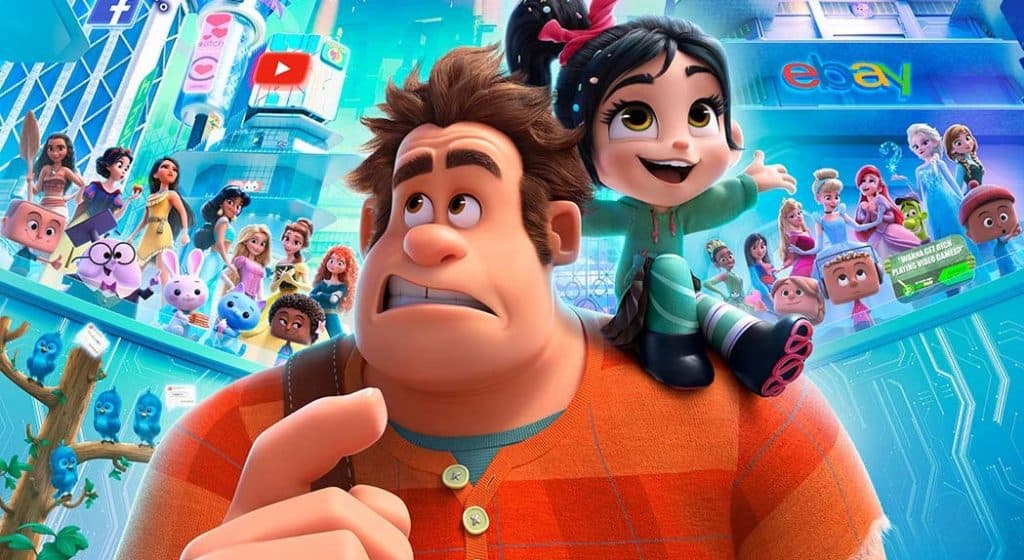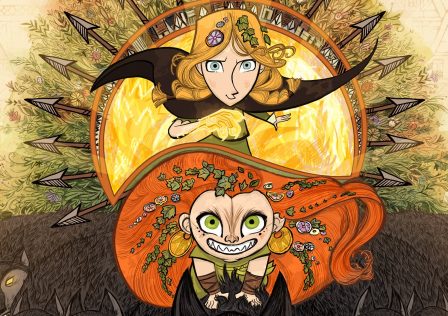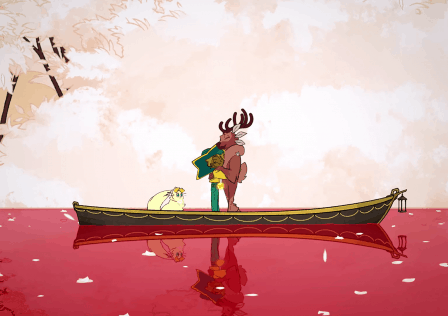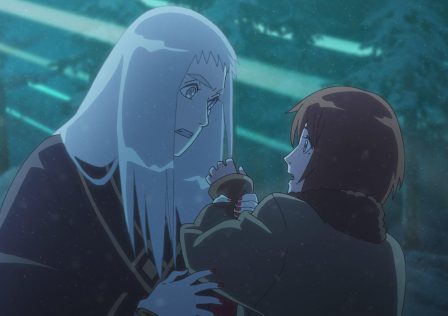We Need to Talk is a panel discussion among DeconReconians to scrutinise pop culture from multiple perspectives, and possibly test our friendship. Have an idea on something that we need to talk about? Tell us by commenting below or email [email protected].
LM Foong: So, Ralph breaks the Internet. And DeconRecon too, it seems! Our team has a pretty conflicted take on the movie. I’m joined by fellow DeconReconians JY Tan and J Cheong to talk about the recent Wreck-It Ralph 2, and here’s hoping our friendship survives this. But before we dive in:
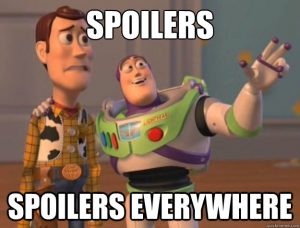
Here’s a short summary of the movie: Gruff Ralph and boisterous Vanellope, the polar opposite BFFs whose friendship was forged in the first Wreck-It Ralph, have a mission in the Internet. eBay, specifically. That’s the only place they will be able to find a discontinued wheel to fix the racing game that Vanellope resides in, Sugar Rush. Without the wheel, the Sugar Rush arcade machine will be unplugged and all its sticky denizens will be homeless.
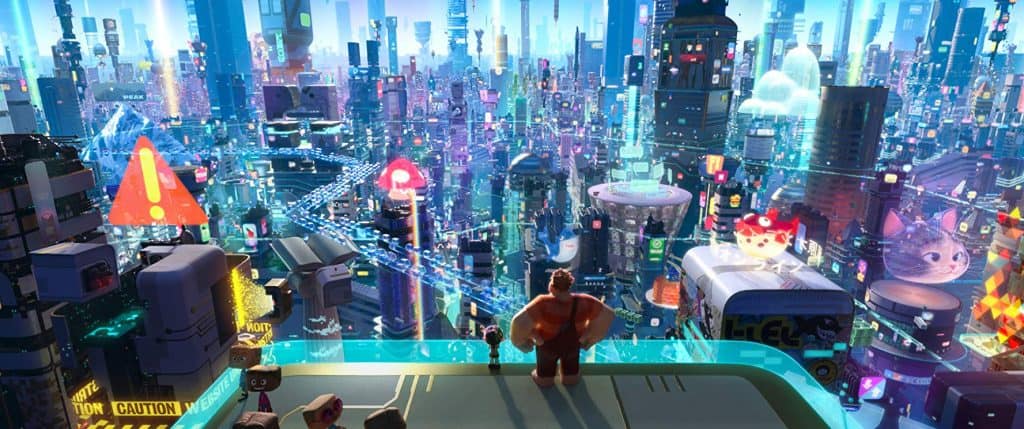
As Ralph and Vanellope traverse the World Wide Web, trying to earn enough money so that they can afford the one-and-only wheel, they find themselves drifting further apart. Vanellope discovers a new sense of purpose in the Internet, one that may not have space for her best friend. And Ralph deals with it the best way he knows how – by wrecking the Internet, and possibly the person he loves most.
To start off, yay or nay for Ralph Breaks the Internet?
J Cheong: Right off the bat, I wasn’t a fan of the first Wreck-It Ralph as I thought it was going to be another soulless cash grab pandering to gamers and geeks. However, as the story progressed, I actually like the twists in the movie.
When it came to the sequel, I felt like it was actually a lot more predictable and I could quite easily tell how the story was going to play out. I liked the strong cast of characters and how the movie expanded on the video games aspect, and even added in internet and geek culture, but I just wished they had taken a little more risk with the story. Still, I’d say it’s fun movie for kids and adults.
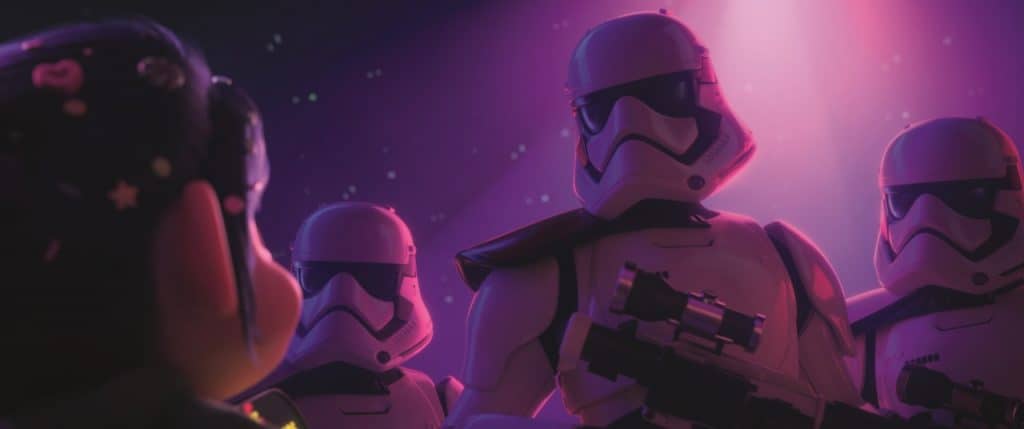
JY Tan: I have to preface this by saying that Ralph Breaks the Internet seems like it’s precision-engineered for people like me. A sequel to a movie that I like — nay — love? Check. Fanservice that is centred around Disney’s IPs that somehow also functions as a meta-narrative device? Check. Disney poking fun at itself while maintaining its core values? Check to the mate.
For example, the Disney Princesses scene is this meta-comedy goldmine that I teared up laughing in the cinema and will probably crack me up till I’m an old curmudgeon.
A minor peeve is that I thought director Rich Moore was dead set on getting Mario for the Wreck-it Ralph sequel. Where’s my Mario????
LM: I’d have to say that JY hit the nail on the head with the word ‘engineered’. As a Disney fan, Ralph Breaks the Internet (let’s call it Ralph 2 from now on) really tested my ability to be objective. While I gorged on the fan-service (and man, they were yummeh), I had a nagging voice in my head that says the reference-buffet is at the expense of a tighter storyline. The climax is emotional but feels rushed, possibly a constraint from having to reserve movie minutes for the cameos and callbacks.
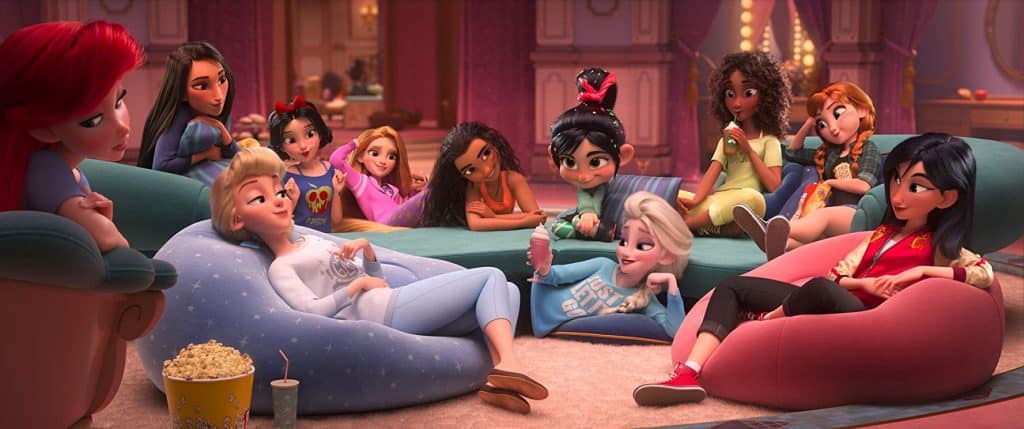
As such, my favourite parts are also my least favourite parts, if that’s at all possible. For example, Vanellope’s Disney-Princess song is such an unhinged satire of its melodious predecessors that I muffle-guffawed the whole way through in the cinema.
In the movie, Vanellope gets insecure that she doesn’t have a ‘song’ like the rest of the Disney Princesses she meets. It alludes to her not knowing what she wants in life (Disney Princesses always use an ‘I Want’ song to express their dreams and desires). When Vanellope finally finds her ‘heartsong’, it seems to say that she can finally be truthful to herself. I liked that.
But I’m also uncomfortable that Vanellope’s find-herself moment has to be conflated with how Disney Princesses work. The song is funny AF, but there are more polished ways to get Vanellope to recognise her dreams than to shoehorn in a musical sequence into a franchise that has never been a musical. There are plenty of other such frantic winks at fans that just drags on the pacing and dilutes the plot. This is in stark contrast to the first Wreck-It Ralph, which, despite having plenty of Easter eggs for gaming fans, keeps a tight focus on the story.
[socialpoll id=”2530663″]
What about you guys? Was the fanservice great or bothersome for you in Ralph 2?
JC: Personally, I think they striked a nice balance with the fanservice. Ralph and Vanellope still take center stage and are the main focus of the entire duration of the show. On top of that, most of the screen time the main characters have are shared with new and original characters to the movie, which helped move the story along. My personal favourite had to be J.P. Spamley.
In fact, I was hoping to see a few more cameos – I can just imagine Marvel superheroes, X-Wings, the Millenium Falcon and maybe a few video games character banding together for the final fight. But if they did that, moviegoers would probably say they stole the idea from Ready Player One.
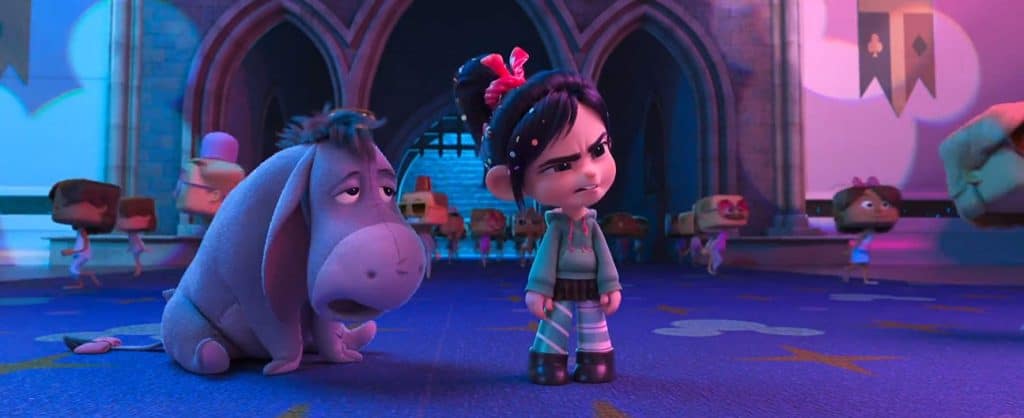
JY: I also feel that the fanservice hovers on that Just Right territory. It’s really easy for the filmmakers to just insert these scenes without context and it’ll still be beloved, but at least they end up pushing the film forward narratively. When Vanellope meets the princesses, it’s as much an extended meta-joke of the entire Disney Princess line-up as it is a point for Vanellope to realise that she has Wants. Had she not met the princesses, she wouldn’t be inclined to seek out her ‘I Want’ song.The princesses are fanservice, but also catalysts — and interestingly, among the several female role models that serve to inspire Vanellope to find her dreams.
The Slaughter Race song works in several ways. It is about Vanellope’s wants but, at the same time, is also an exploration of her fears (What would Ralph say/ if it turns out I stay/ In this place called Slaughter Race?). It’s another princess meta-joke (the fact that the music is written by Disney stalwart and forever legend Alan Menken is another layer in the Disney in-joke cake). It subverts the typical Disney ‘I Want’ Song (it’s less magical and more… violent?), and also drives the narration. If films and animation are about how to most interestingly convey a point or message or scene, this scene is pretty darn impressive.
And since JC brought up Ready Player One, I would like to say that Ralph 2 is a better film about Internet and geek culture. Compared to the hollow nostalgia of Ready Player One, Ralph 2 celebrates geek culture, acknowledges its pros and cons, and criticizes it.

LM: Well, despite my misgivings about the movie, I did find that the emotional journey between Ralph and Vanellope is well-developed. More amazingly, it explores the real problem that breaks parent-child bonds, friendships, and even the Internet – insecurities.
Ralph’s intense reluctance to let Vanellope go can be seen as a reflection of parents grappling with their children grow up, best friends who had to say goodbye, or the toxic fan reactions towards reinventions and reinterpretations of their favourite movies or games. Like Ralph, their zeal to keep everything they know from changing could be suffocating (even destroying) the very thing they love. Slow claps from me for the multi-layered symbolism that combines timeless lessons and current commentaries.
I can sense that you are probably aching to comment/gush about the story and themes. Take it away, guys!
JY: Sorry, everyone, that’s basically cue for me to open the floodgates of gush. Better grab on to those driftwood!
What impressed me most about the film is how it tackles masculinity. Specifically, how the insecurity of one’s masculinity could turn toxic. Or, in Ralph’s case, literally turn into a massive amalgamation of obsession and anger.
The first two acts of the film is essentially Ralph going out of his way to solve Vanellope’s problems. He’s doing it for a friend, sure, but his dogged insistence that everything is for the own good of Vanellope increasingly pushes thing into possessive territory. Unwilling to part with his friend, Ralph goes as far as to unleash a virus in a game in order to ‘win’ back Vanellope.
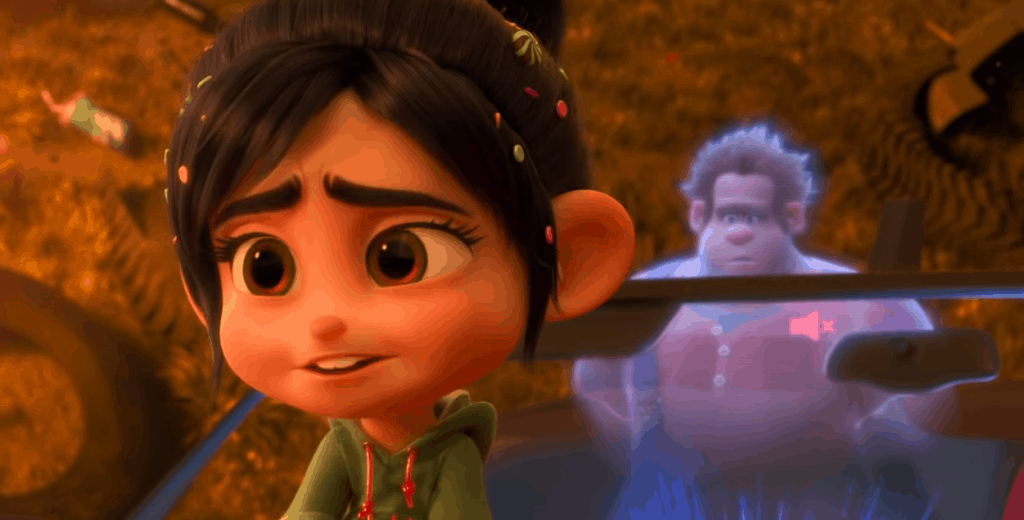
I feel like it’s an exploration of how men are spurred on by traditional notions of being a ‘white knight’ for women, and in the process not only disregard her wants but feel that they know better about her needs. The story, at one point, becomes a tale of an insecure man holding a woman back because of his selfishness and fears.
For Asian families with masculine fathers, this strikes a little close to home. We’re no doubt familiar with “Big Man” tendencies of Asian men. I’d say that the norms are gradually being chipped away, but there’s still notion that men has to control the women in their lives because they know better.
LM: Interesting that you brought up masculinity, JY. I definitely see the Disney Princesses scenes as taking a hammer to patriarchy – Rapunzel made that very clear!

JY: What I find brilliant is the scene at the climax in which the Disney Princesses saved Ralph with their respective powers. It’s fanservice to the max (the movie even plays each of the princesses’ score when they appear!), yes, but at the end of that scene, Ralph is placed in a princess dress and he’s depicted as being very alright with it, showcasing that he’s more or less comfortable at where he stands in his masculinity.
JC: Just to add on to those two very grown-up themes that you both mentioned, I actually liked how the movie also caters to the younger audience with the message that as you grow up, you’ll have to learn to let go of some of the things or people around you as life takes you on different paths.
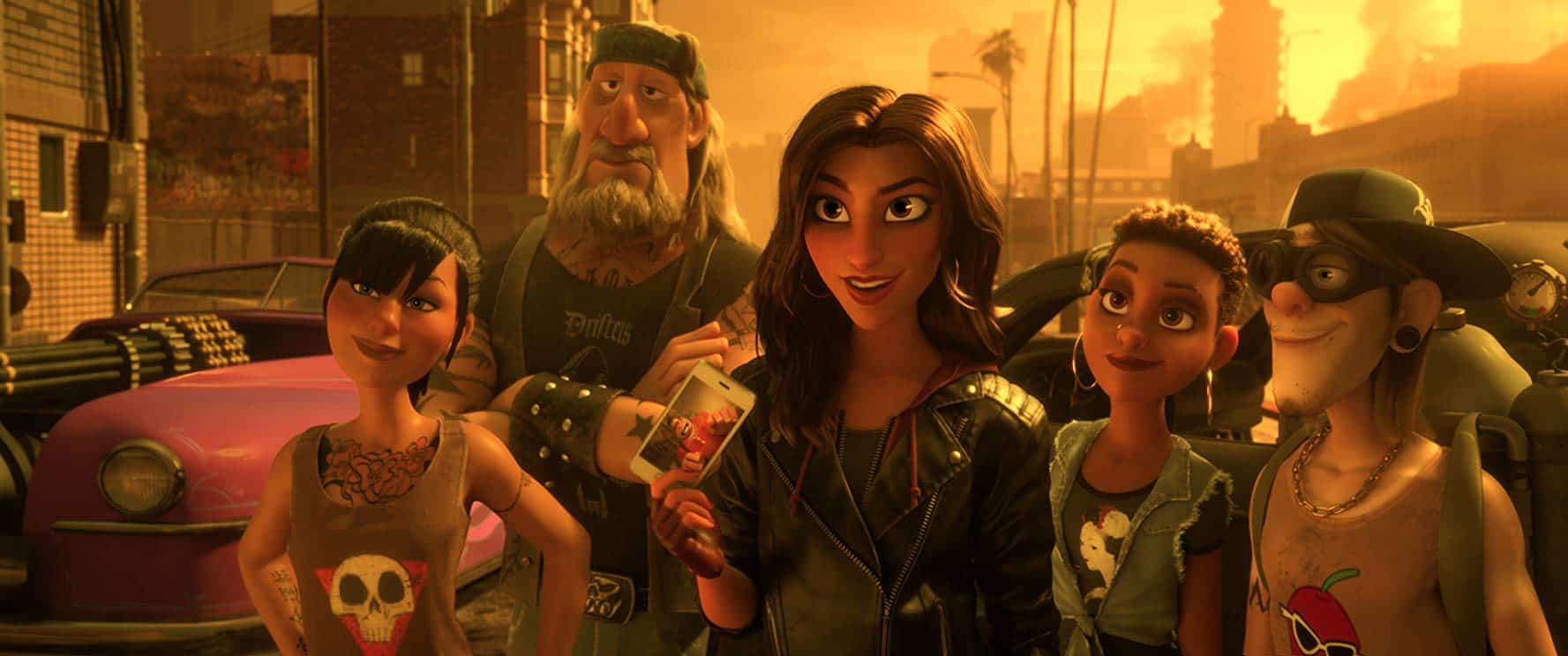
A very good example here would be parting with friends from school. It’s a very difficult thing as I think we’ve all had to deal with losing a friend who we used to spend hours and days with, having fun and confiding in them about our dreams and fears. When the time comes for you to part ways, due to reasons such as going to different schools or migrating, it’s super painful and of course, it’s only human to feel that we won’t find that same connection we had with our friend with anybody else.
This is exactly the problem Ralph faces as Vanellope expresses her desire to stay in Slaughter Race. To me, the most important lesson from the movie is about letting go and letting yourself and your friends grow out of your comfort zone. Also, there’s technology to help us easily stay connected with each other. This was also very nicely shown at the end of the movie.
LM: Well said, and I think that lesson applies to all ages too. Let’s talk about the third act. Did the finale or the horror-legion of Ralphs speak to you (or your nightmares)?
JC: Haha! Seeing that gargantuan version of Ralph made up of squirming little versions of him definitely gave me chills for two reasons. Firstly, the sight of it was quite disturbing, but also because it resonated with me. Much like Ralph, I’ve been through that phase of not wanting to lose my childhood friend. When I found out he was moving out the neighbourhood, I think we were both quite devastated. We even devised plots so that we didn’t have to part ways and it definitely got us into trouble.
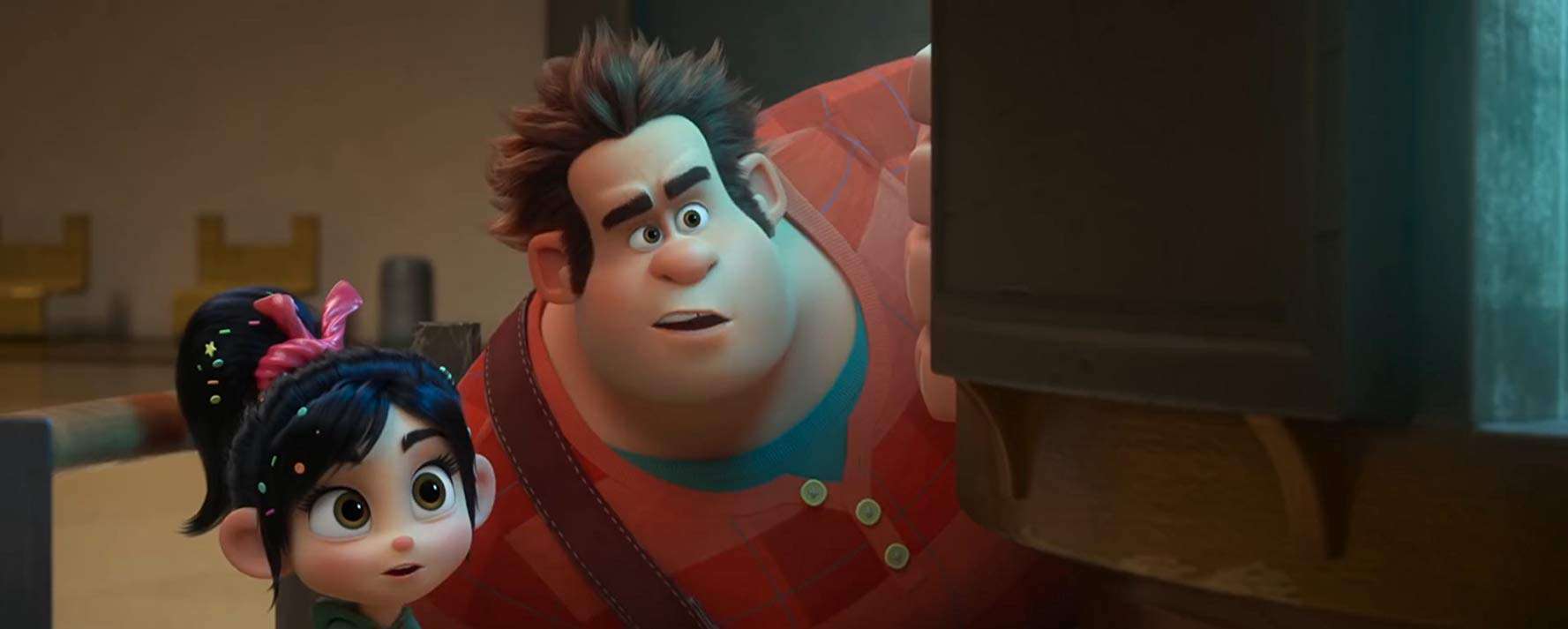
As I mentioned earlier, the ending isn’t bad but it isn’t great either. To me, it was just serviceable to get that message and lessons across. Still, would’ve been nicer if it had a little more action before the big epiphanic moment for Ralph.
JY: I really like that the big finale is essentially a virus that duplicated Ralph’s insecurity to the point of a monstrous entity — a metaphor of how the Internet can amplify the worst of things, especially ideas of masculinity. It’s timely in an age where the concept of masculinity is being discussed, blown up, warped and redefined, up to the point of having online subcultures that form echo chambers of backdated (or traditional) forms of masculinity.
Ironically, in becoming so caught up in his insecurities, Ralph actually becomes the thing he’s been trying not to be — the villain. It’s only when Ralph accepts his insecurities that the day is saved.
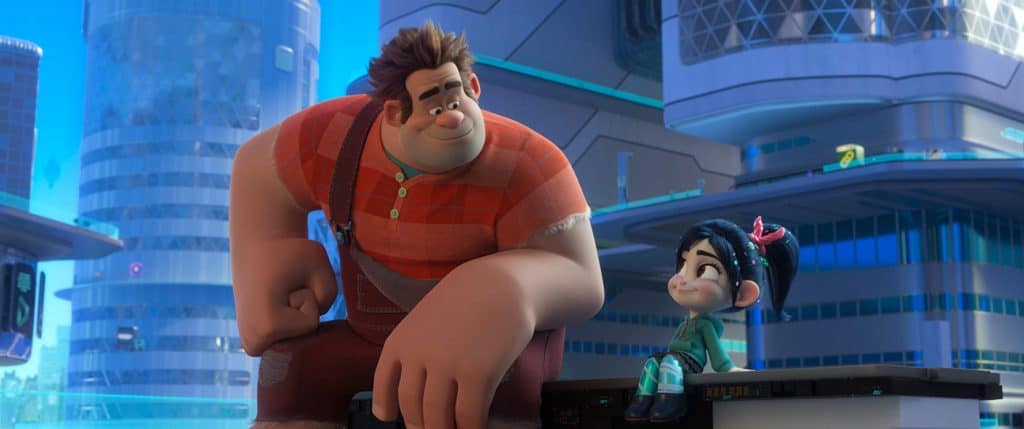
It’s worth noting that Ralph isn’t deliberately toxic — as the character Yesss tells Vanellope, Ralph’s actions were born from love, and a need to help a friend. The movie doesn’t say that it’s wrong to help a friend, but it’s wrong to be possessive and restrictive of their desires because you’re afraid of losing them. It’s a surprisingly nuanced take, and I’m very impressed at what the writers and directors went for.
LM: And I’m impressed that the movie didn’t break DeconRecon after all! It was an enjoyable chat, despite our different takes on Ralph 2. Adulthood achievement unlocked! To borrow from Disney’s old nemesis, Warner Bros – That’s all, folks!

When more heads are better than one.
